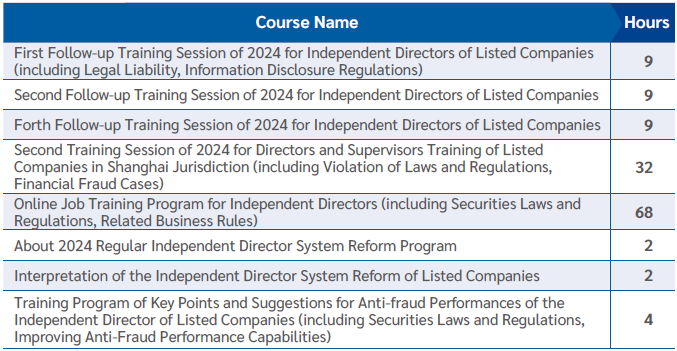
Operation and Governance
Board Operations
USI's Board of Directors has four special committees that report directly to it: the Strategy and Sustainability Committee, the Nomination Committee, the Remuneration Committee, and the Audit Committee. Directors are assigned to different committees based on their expertise to enhance the Company's core competitiveness. Each committee operates under specific rules of procedure, and proposals from these committees must be reviewed and approved by the Board. All members of the special committees must be directors. Independent directors shall comprise the majority of members on the Audit, Nomination, and Remuneration Committees and be the conveners of those committees. The convener of the Audit Committee must be a professional accountant, and the Strategy and Sustainability Committee should include at least one independent director. The Company must hold at least two Board meetings annually with an 80% attendance requirement. In 2024, 8 board meetings were held, achieving a 100% attendance rate.
Please link to "Corporate Governance of Investors" for details.
To expand board members' competencies, USI arranges training courses that cover corporate governance and sustainability for board members in hopes that they will incorporate the spirit of sustainability in steering USI corporate policy. In 2024, board members completed 135 hours of training.

USI has established a structured evaluation and incentive mechanism. Directors conduct self-assessments and submit working reports to the Shareholders' Meeting, while the Board of Directors oversees the process. The Remuneration Committee drafts compensation proposals based on the achievement of annual profit and operational targets, as well as performance on material sustainability issues, such as energy intensity and GHG emissions, aligned with role specific responsibilities. Compensation proposals also consider industry benchmarks, company status, and align executive pay with company assets, profitability, and strategic goals.
2023 & 2024 Performance Indicators:
| Financial indicator | ROE≥10% |
|---|---|
| Non-financial indicator (climate-related indicator) | By 2030, reduce 35% GHG emissions (base year: 2016) with an average annual reduction of 2.5% |


